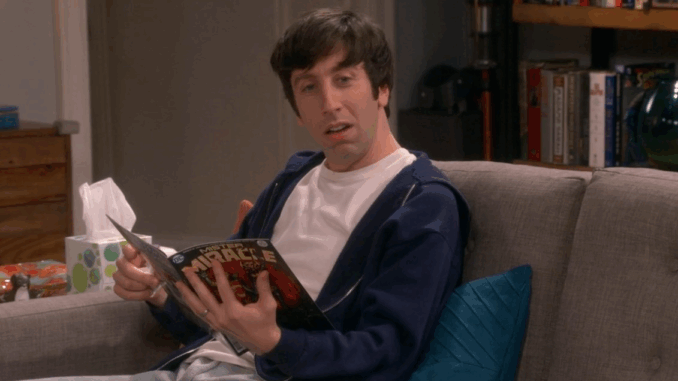
Howard Wolowitz may have entered The Big Bang Theory as the over-the-top, wannabe ladies’ man with a closet full of flashy outfits and an ego bigger than his engineering degree, but he exited the series as one of its most unexpectedly heartwarming characters. Played by Simon Helberg, Howard offered more than just comic relief—he showed how a sitcom character can evolve in meaningful, believable ways without losing the quirks that made them memorable.
At first glance, Howard seemed to be the least mature of the core group. Unlike his friends, he lacked a Ph.D. (a fact Sheldon never let him forget), still lived with his mother, and constantly used cheesy pick-up lines that rarely landed. His loud wardrobe, cartoonish libido, and nasally voice made him easy to underestimate. But beneath the bravado was a deeply loyal friend and a brilliant aerospace engineer—one of the few among them to actually travel to space.
Howard’s relationship with his offscreen mother, Mrs. Wolowitz, became a running gag in the early seasons. Their shouting matches—her loud, screechy voice and his constant need for maternal approval—offered many laughs. But as the show progressed, this relationship helped explain Howard’s emotional immaturity and dependence, setting the stage for the personal growth he would undergo later.
Everything began to shift with the arrival of Bernadette Rostenkowski, played by Melissa Rauch. What started as a setup by Penny quickly turned into one of the most stable and endearing relationships on the show. Bernadette didn’t just love Howard; she challenged him. She pushed him to grow up, leave the nest, and face his insecurities. And he did. Their wedding marked a turning point—not only for Howard, but for the series’ evolving tone.
Perhaps one of Howard’s most defining arcs was his mission to space. For a character often viewed as insecure and immature, going to the International Space Station was both a humorous and empowering plotline. It gave him a rare moment of genuine heroism and pride, elevating his status within the group and with viewers. The scenes leading up to his launch and his return were filled with both comedy and surprising emotion.

But the most poignant development in Howard’s journey came with the passing of his mother (following the real-life death of Carol Ann Susi). The show handled this moment with rare sensitivity. Howard’s grief was subtle and restrained, yet deeply affecting. It marked the full transition from the boy who depended on his mom to the man who was now building a family of his own.
By the series finale, Howard was a father of two, a devoted husband, and a respected friend. His jokes never stopped, nor did his flair for odd fashion. But he matured in the most natural way possible—through love, loss, and loyalty.
Simon Helberg deserves credit for bringing depth to what could have remained a one-note character. His impeccable comedic timing paired with his ability to convey vulnerability turned Howard into one of the most multidimensional figures on the show. Fans came for the jokes but stayed for the quiet emotional arcs that gave The Big Bang Theory its surprising heart.
In the end, Howard Wolowitz was never just the guy with the belt buckles and magic tricks. He was the show’s reminder that growth can come from the most unlikely places—and that even the loudest voice in the room can have the deepest story to tell.